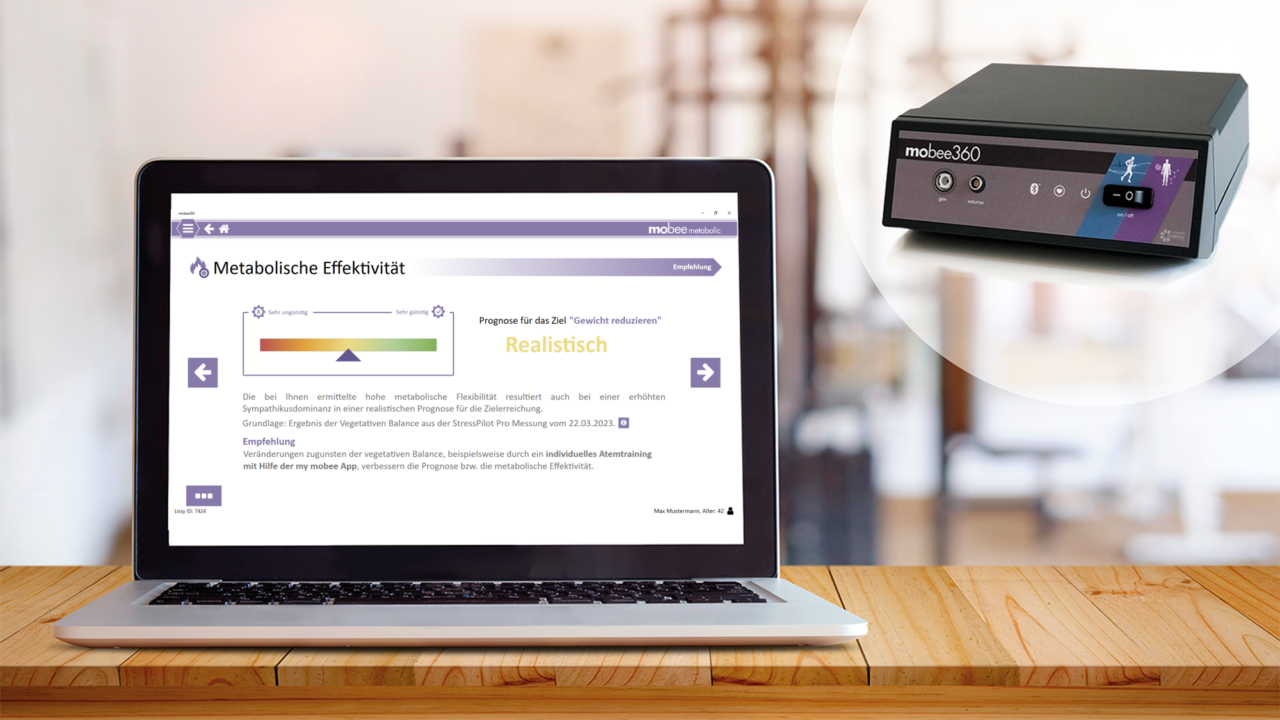Cross-product forecasts from the mobee® metabolic and Stress Pilot® Pro modules.

How good is the prognosis for sustainable weight loss for your client?
Metabolic effectiveness" deals with precisely this question. Based on the vegetative balancewhich are linked to the Stress Pilot® Pro and which is determined by means of Breathing gas analysis determined metabolic flexibilitycan be used to predict whether it is realistic to achieve certain weight or body composition goals.
In the case of the frequent goal of "weight loss", the activity of the autonomic nervous system plays a central role: if it is not balanced, moderate eating and maintaining a calorie balance may be much more difficult. If the interaction between Sympathetic nervous system and Parasympathetic nervous system harmonious, the conditions are more favourable.

A vegetative sympathetic dominance can lead to a deterioration in insulin sensitivity. The poorer sleep that also accompanies autonomic sympathetic dominance is associated with difficulties in losing weight, as it affects the metabolism and leads to appetite-increasing hormonal changes. This is why some people tend to eat more when they are stressed (so-called "stress eating").
Conversely, a vegetative parasympathetic dominance tends to slow down the metabolism and makes weight loss more difficult due to reduced calorie burning. It has a digestive effect and is often associated with increased food intake due to an appetite-increasing effect. In addition, the body tends to store more energy in the form of fat when the parasympathetic nervous system is dominant.
In order to have a good chance of losing weight in the long term, sympathetic and parasympathetic activity must therefore be in a healthy balance. The same applies to other weight goals (maintaining weight, increasing weight/building muscle). An effective measure to improve the vegetative balance is, among other things Targeted breathing training represent.